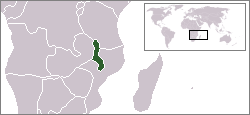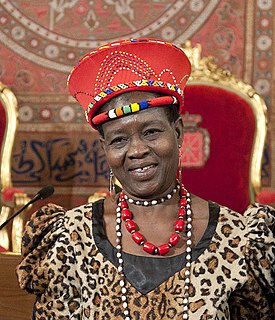Related Research Articles
A widow is a woman whose spouse has died; a widower is a man whose spouse has died. The treatment of widows and widowers around the world varies.
Reproductive rights are legal rights and freedoms relating to reproduction and reproductive health that vary amongst countries around the world. The World Health Organization defines reproductive rights as follows:
Reproductive rights rest on the recognition of the basic right of all couples and individuals to decide freely and responsibly the number, spacing and timing of their children and to have the information and means to do so, and the right to attain the highest standard of sexual and reproductive health. They also include the right of all to make decisions concerning reproduction free of discrimination, coercion and violence.
Dry sex is the sexual practice of having sexual intercourse without vaginal lubrication. Vaginal lubrication can be removed by using herbal aphrodisiacs, household detergents, antiseptics, by wiping out the vagina, or by placing leaves in the vagina besides other methods. Dry sex is associated with increased health risks.

Within the framework of the World Health Organization's (WHO) definition of health as "a state of complete physical, mental and social well-being, and not merely the absence of disease or infirmity," reproductive health, or sexual health/hygiene, addresses the reproductive processes, functions and system at all stages of life. UN agencies claim sexual and reproductive health includes physical, as well as psychological well-being vis-a-vis sexuality.
Abstinence, be faithful, use a condom, also known as the ABC strategy or abstinence-plus sex education, also known as abstinence-based sex education, is a sex education policy based on a combination of "risk avoidance" and harm reduction which modifies the approach of abstinence-only sex education by including education about the value of partner reduction safe sex and birth control methods. Abstinence-only sex education is strictly to promote the sexual abstinence until marriage, and does not teach about safe sex or contraceptives. The abstinence-based sex education program is meant to stress abstinence and include information on safe sex practices. In general terms, this strategy of sex education is a compromise between abstinence-only education and comprehensive sex education. The ABC approach was developed in response to the growing epidemic of HIV/AIDS in Africa, and to prevent the spread of other sexually transmitted diseases. This approach has been credited by some with the falling numbers of those infected with AIDS in Uganda, Kenya and Zimbabwe, among others. From 1990 to 2001 the percentage of Ugandans living with AIDS fell from 15% to between 5 and 6%. This fall is believed to result from the employment of the ABC approach, especially reduction in the number of sex partners, called "Zero-Grazing" in Uganda.

Lesbian, gay, bisexual, and transgender (LGBT) persons in Malawi face legal challenges not experienced by non-LGBT residents.

The status of women in Ghana and their roles in Ghanaian society has changed over the past few decades. There has been a slow increase in the political participation of Ghanaian women throughout history. Women are given equal rights under the Constitution of Ghana, yet disparities in education, employment, and health for women remain prevalent. Additionally, women have much less access to resources than men in Ghana do. Ghanaian women in rural and urban areas face slightly different challenges. Throughout Ghana, female-headed households are increasing.

The transition from a one-party state to a multi-party democracy significantly strengthened the already cordial U.S. relationship with Malawi. Significant numbers of Malawians study in the United States. The United States has an active Peace Corps program, Centers for Disease Control and Prevention, Department of Health and Human Servicess, and an Agency for International Development (USAID) mission in Malawi.
Prostitution in Uganda is illegal according to Uganda's 1950 Penal Code, but is widespread despite this. Many turn to prostitution because of poverty and lack of other opportunities. A study of Kampala teachers in 2008 showed that teachers were turning to prostitution to increase their income. A sex worker can earn around 1.5 million Ugandan shillings (£439) per month, whereas this would be a yearly wage for a secondary school teacher. There are many Kenyan prostitutes in the country.

As of 2012, approximately 1,100,000 people in Malawi are HIV-positive, which represents 10.8% of the country's population. Because the Malawian government was initially slow to respond to the epidemic under the leadership of Hastings Banda (1966–1994), the prevalence of HIV/AIDS increased drastically between 1985, when the disease was first identified in Malawi, and 1993, when HIV prevalence rates were estimated to be as high as 30% among pregnant women. The Malawian food crisis in 2002 resulted, at least in part, from a loss of agricultural productivity due to the prevalence of HIV/AIDS. Various degrees of government involvement under the leadership of Bakili Muluzi (1994–2004) and Bingu wa Mutharika (2004–2012) resulted in a gradual decline in HIV prevalence, and, in 2003, many people living in Malawi gained access to antiretroviral therapy. Condoms have become more widely available to the public through non-governmental organizations, and more Malawians are taking advantage of HIV testing services.
Malawi ranks 170th out of 174 in the World Health Organization lifespan tables; 88% of the population live on less than £2.40 per day; and 50% are below the poverty line.
The virgin cleansing myth is the belief that having sex with a virgin girl cures a man of HIV/AIDS or other sexually transmitted diseases.
Prostitution in Malawi is legal and prevalent around hotels and bars in urban and tourist areas. Living off the proceeds of prostitution is illegal. In 2015, it was estimated there were 20,000 sex workers in the country.

The history of the evolution of the traits of women in Kenya can be divided into Women within Swahili culture, Women in British Kenya, and Kenyan Women post-Independence. The condition and status of the female population in Kenya has faced many changes over the past century.
Sex for fish sometimes referred to as "fish for sex" is a phenomenon in which female traders engage in sexual relationships with fishermen to secure their supply of fish. The women fish traders are often pressured into having sex with the fishermen who supply them with daily fresh fish. Along the beaches where the sex for fish practices have been observed, the fishermen do maintain several transactional sexual relationships with women at different beaches where they land with their fish.

Theresa Kachindamoto is the paramount chief, or Inkosi, of the Dedza District in the central region of Malawi. She has informal authority over more than 900,000 people. She is known for her forceful action in dissolving child marriages and insisting on education for both girls and boys.
Violet Banda is a reporter and children’s rights activist from Malawi. Through her weekly radio appearances, she has drawn the attention of the Malawian public and government to the problems afflicting children in her country, including abuse, rape, forced marriage, and discrimination based on HIV status.

Nice Nailantei Leng'ete is a Kenyan human rights activist, advocating for alternative rite of passage (ARP) for girls in Africa and campaigning to stop female genital mutilation (FGM). In her work with Amref Health Africa, Leng'ete has saved an estimated 15,000 girls from undergoing genital mutilation and for many, childhood marriages. She was named by Time Magazine in 2018 as one of the 100 most influential people in the world.
Nyovani Janet Madise is the current Director of Research and Development Policy and Head of the Malawi office of the African Institute for Development Policy. She is an advisor to the World Health Organization and a former professor of the University of Southampton in Demography and Social Statistics. Nyovani has over 100 peer-reviewed research publications that focus on global health issues, to highlight the influence of social and economic factors on health in low-income countries.
Susan Cotts Watkins is an American demographer. She has been a professor at Yale University and the University of Pennsylvania. She is now professor emerita at the University of Pennsylvania. Her research has focused on the impact of social networks on cultural change in the demography of the U.S., Western Europe, and Africa.
References
- 1 2 3 4 Ed Butler (21 July 2016). "The man hired to have sex with children". BBC News. Retrieved 22 July 2016.
- ↑ Kizito Makoye (4 October 2013). "Widow sexual cleansing ritual continues in Tanzania". news.trust.org. Retrieved 22 July 2016.
- ↑ "Malawian 'hyena man' arrested for having sex with children". BBC. 26 July 2016. Retrieved 15 August 2016.
- 1 2 Anderson, E-L (2015). Gender, HIV and Risk: Navigating structural violence. Palgrave MacMillan.
- 1 2 Anderson, E-L (2012). "Infectious Women: Gendered bodies and HIV in Malawi". International Feminist Journal of Politics. 14 (2): 267–287. doi:10.1080/14616742.2012.659850.
- ↑ Munthali, AC; Zulu, EM (December 2007). "The timing and role of initiation rites in preparing young people for adolescence and responsible sexual and reproductive behaviour in Malawi". African Journal of Reproductive Health. 11 (3): 150–67. doi:10.2307/25549737. JSTOR 25549737. PMC 2367147 . PMID 18458746.
- ↑ Beenish Ahmed (January 20, 2014). "Confronting a Sexual Rite of Passage in Malawi". The Atlantic. Retrieved 22 July 2016.
- ↑ "Au Malawi, Louis, une " hyène " payée pour violer". Le Monde.fr. 26 July 2017 – via Le Monde.
- 1 2 Rachel Awuor (2007-11-01). "Widow cleansing: 'Good' intentions – negative consequences". Farm Radio International . Retrieved 2016-07-23.
- ↑ "These Kenyan widows are fighting against sexual 'cleansing'". pri.org. 23 October 2018. Retrieved 7 November 2018.